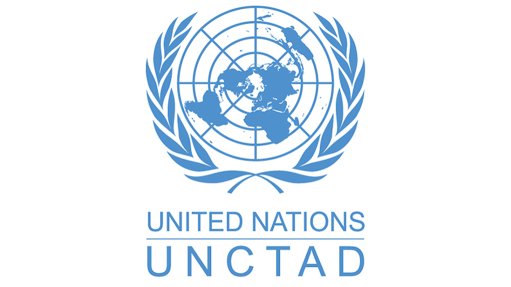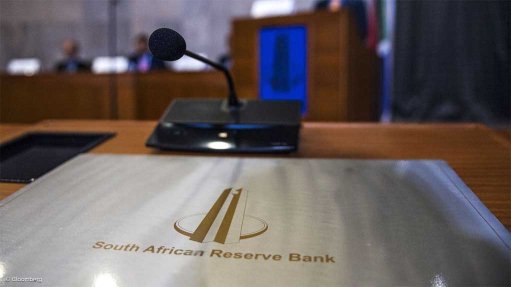Promise of democracy eludes many in Nigeria . . . but things are moving again
As I sat down to write a column on Nigeria on June 12, I had a flashback to ‘The June 12’ – the name Nigerians gave to the country’s failed first post-Cold War attempt to restore democratic rule. The then head of State, General Ibrahim Babangida, had promised to step down from power after elections in June 1993, which were won by Moshood Kashimawo Olawale (MKO) Abiola in what was widely regarded as free and fair elections.
Babangida annulled the election results, sparking widespread unrest, and set up a ruling council under respected diplomat Ernest Shonekan. Inertia and policy drift lasted until November, when Babangida’s close ally, General Sani Abacha, emerged as coup leader. As part of his Presidential campaign, MKO had bought the magazine of which I was West Africa editor at the time, the Africa Economic Digest, and which MKO’s subsequent arrest and imprisonment consigned to publishing history. June 12 became a focal point of opposition to military rule.
Abacha’s corrupt (millions of dollars were later traced to UK and Swiss banks) and brutal (he infamously executed author and environmentalist campaigner Saro Wiwa) misrule came to an end with his death in 1998 – allowing for fresh democratic elections under a new Constitution. With all the portent of Greek tragedy, Abiola died on the day of his release from prison – etching a conspiracy theory in the minds of many older Nigerians that he was murdered to prevent him taking up the Presidency. As if to acknowledge this hurt, and the date’s importance, one of now former President Muhammadu Buhari’s first acts in office was to declare June 12 as Democracy Day.
The inauguration of Bola Tinubu, replacing former Major-General Buhari, on time and in accordance with Nigeria’s Constitution on May 29, ends the era of military leaders of the generation that dominated the 1970s, 1980s and early 1990s. Abacha showed Nigeria its nadir, and the psychological distance with its military past has lengthened after yet another political change following an election in accordance with the Constitution – despite the fact that poverty, Covid and logistics reduced voter turnout to roughly 27% of the 93-million registered voters in Nigeria’s population of 200-million.
Tinubu’s inauguration marks the end of the inertia and policy drift that characterised two terms of Buhari’s rule. Inertia, policy drift and a low oil price are the key ingredients of political risk leading to popular unrest and chaos – which in the past have given the military an excuse to step in. Tinubu appears to have hit the ground running: he used his inauguration speech to announce that he would end the $7-billion-a-year oil price subsidy. The $7-billion saved will be spent on infrastructure. Despite being Africa’s second-largest oil producer, Nigeria imports all its domestic use. Fuel subsidies are seen as one of the few benefits the Nigerian State gives to Nigerians.
The announcement caused an immediate shortage of fuel as people’s immediate fear is scarcity. However, it came days after Dangote Refinery – the long-awaited refinery built by billionaire Aliko Dangote – was commissioned in the presence of five regional heads of State from oil-producing countries. At the opening, Dangote claimed that Dangote Refinery will have the capacity to process a third of Nigeria’s output of 1.5-million barrels per day, to meet all its local refined fuel needs, as well as exporting to the region. With Dangote’s refined fuels only expected to hit the local market sometime in July, there are concerns that short-term stockpiling will impact on political risk and inflation.
Tinubu’s second move was to suspend Central Bank of Nigeria (CBN) governor Godwin Emefiele. This may presage a reform of the exchange rate system to resolve a chronic shortage of foreign exchange – an apparently intractable problem. Foreign portfolio investors, airlines and manufacturers can’t get sufficient foreign exchange to pay dividends, let alone import goods and services. In the run-up to the February elections, ratings agencies downgraded Nigeria, citing congestion caused by exchange controls as one of the reasons. Although the International Monetary Fund strongly encourages liberalisation of the exchange rate, full liberalisation may prove to be too much too fast – likely to involve a dramatic drop in the currency from its current 465 naira to the US dollar to 700 naira – but some form of move to a unified rate is likely.
Almost as soon as Tinubu announced Emefiele’s suspension, local media reported that the Department of State Services had arrested Emefiele for his role in a $1-billion transaction allegedly linked to Dangote. CBN sources told local media that Emefiele used a $750-million loan from the African Export Import Bank to transfer $750-million to Dangote at a rate well below current bank and parallel market rates. There is no love lost between Tinubu and Emefiele; Emefiele caused Tinubu’s campaign a headache on more than one occasion, first choosing to and then failing to properly introduce new bank notes into Nigeria’s largely cash economy during elections and, secondly, announcing his own potential candidacy without resigning from his fixed-term post.
Dangote was reportedly among the few to back Emefiele’s Presidential candidacy. Tinubu in his election manifesto committed to the independence of the CBN and so a prolonged suspension of the governor – possibly for the remainder of his term – would suit his agenda. As for naming and shaming Dangote so soon into his Presidency, at least one observer sees this as the new President bringing the country’s only self-made billionaire to heel – particularly as Dangote is now likely to establish a petroleum products monopoly in Nigeria.
As one analyst noted, Nigeria is in “a hell of a mess, economically and on the security front”. He would not say if Tinubu was the man to resolve the mess, saying only: “At least it is not Atiku Abubakar (Tinubu’s rival for the Presidency).” Either way, in a few politically astute moves, Tinubu has given the impression things will change; that he will save $7-billion a year on oil import contracts, and – with Dangote Refinery – the balance of payments will improve through domestic production and businesses’ foreign exchange problems will soon be resolved. After two terms of watching political paint dry, things are moving, and fast.
Article Enquiry
Email Article
Save Article
Feedback
To advertise email advertising@creamermedia.co.za or click here
Press Office
Announcements
What's On
Subscribe to improve your user experience...
Option 1 (equivalent of R125 a month):
Receive a weekly copy of Creamer Media's Engineering News & Mining Weekly magazine
(print copy for those in South Africa and e-magazine for those outside of South Africa)
Receive daily email newsletters
Access to full search results
Access archive of magazine back copies
Access to Projects in Progress
Access to ONE Research Report of your choice in PDF format
Option 2 (equivalent of R375 a month):
All benefits from Option 1
PLUS
Access to Creamer Media's Research Channel Africa for ALL Research Reports, in PDF format, on various industrial and mining sectors
including Electricity; Water; Energy Transition; Hydrogen; Roads, Rail and Ports; Coal; Gold; Platinum; Battery Metals; etc.
Already a subscriber?
Forgotten your password?
Receive weekly copy of Creamer Media's Engineering News & Mining Weekly magazine (print copy for those in South Africa and e-magazine for those outside of South Africa)
➕
Recieve daily email newsletters
➕
Access to full search results
➕
Access archive of magazine back copies
➕
Access to Projects in Progress
➕
Access to ONE Research Report of your choice in PDF format
RESEARCH CHANNEL AFRICA
R4500 (equivalent of R375 a month)
SUBSCRIBEAll benefits from Option 1
➕
Access to Creamer Media's Research Channel Africa for ALL Research Reports on various industrial and mining sectors, in PDF format, including on:
Electricity
➕
Water
➕
Energy Transition
➕
Hydrogen
➕
Roads, Rail and Ports
➕
Coal
➕
Gold
➕
Platinum
➕
Battery Metals
➕
etc.
Receive all benefits from Option 1 or Option 2 delivered to numerous people at your company
➕
Multiple User names and Passwords for simultaneous log-ins
➕
Intranet integration access to all in your organisation


















